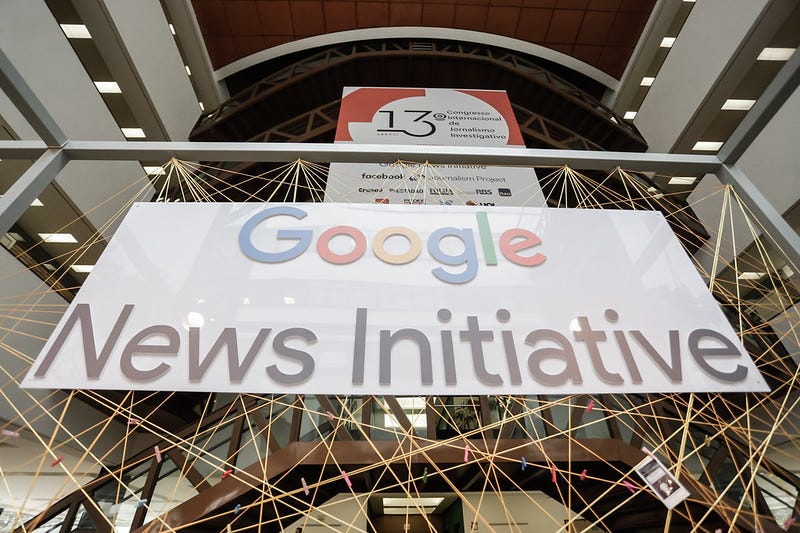The Bill C-18 Reality: Everyone Loses When the Government Mandates Payments for Links
This week confirmed what has been evident for months: Bill C-18 raises a host of serious concerns that result in no winners and a great many losers.

The report that Google is conducting a national test that removes links to Canadian news sites for a small percentage of users sparked a predictable reaction as politicians who were warned that Bill C-18 could lead to this, now want to know how it could happen. None of this week’s developments should come as a surprise. Bill C-18 presents Google and Facebook with a choice: pay hundreds of millions of dollars primarily to Canadian broadcasters for links to news articles or stop linking. Both companies are doing precisely what they said they would do, namely considering stopping linking (Google conducted the same tests in Australia several years ago). Indeed, strip away the hyperbole and the bottom line is this: the costs of Bill C-18 are enormous (the government’s Senate representative suggesting the bill could result in revenues to cover 35% of news expenditures of every news outlet in Canada) and the revenues from news for the platforms are not (Facebook says news only constitutes 3 percent of posts and Google does not even run ads on its Google News product). As some have noted, the government says the companies are stealing content if they link and blocking content if they don’t.
Canadian Heritage Minister Pablo Rodriguez has blithely ignored the risks associated with Bill C-18 for months. By mandating payments for links, the bill creates a real threat to the free flow of information online. It also raises press independence concerns, may violate Canada’s international copyright obligations, harm the competitiveness of independent media, and open the door to trade retaliation by the United States. But as the Google test demonstrates, everyone loses with the current bill. Trust in Google is undermined when it secretly degrades its own service, news organizations won’t see new revenues if the companies stop linking and they will also lose the benefits of the links, and Canadians will find that the bill is an own-goal by the government that undermines the foundation of the Internet.
No one likes to get called on their assertions that Google and Facebook were bluffing when they warned that the prospect of removing news sharing or search results was real, but it is telling that Rodriguez and the bill’s supporters continue to rely on misleading claims about the bill instead of making the case for its actual impact. For example, consider yesterday’s Rodriguez’s tweet:


Leaving aside the fact that Google is blocking links to news sites, not the news sites themselves, Rodriguez continues to falsely claim that the premise of the bill is for the tech companies to “compensate journalists when they use their work.” This just isn’t what the bill does. First, it now includes hundreds of broadcasters that do not even produce news, yet still qualify for compensation. That isn’t compensating for use, it is payment based on holding a CRTC licence. Second, the bill does not require compensation based on use. The standard in Bill C-18 is making news content available, which is defined as:
For the purposes of this Act, news content is made available if
(a) the news content, or any portion of it, is reproduced; or
(b) access to the news content, or any portion of it, is facilitated by any means, including an index, aggregation or ranking of news content.
Google and Facebook don’t typically reproduce the news. Rather, they link to it and thereby send the user to the publisher’s own platform where the publisher benefits from increased traffic and potential ad revenue. Therefore, the key provision is (b), which covers facilitating access to the news, better known as linking to it. That is not how most Canadians would conceive of use and why officials typically avoid acknowledging that the bill is about payment for links.
Rodriguez isn’t alone in relying on misleading claims. Kevin Desjardins of the Canadian Association of Broadcasters, whose members are the primary beneficiaries of Bill C-18, tweeted:

Rather than owning up to payments for links with millions for Bell, Rogers and the CBC, the CAB now maintains this is really about who profits from our personal data? There is no reference to this issue in the bill. But even if there was, the idea that the government and broadcasters are looking to profit from weak Canadian privacy laws isn’t something to brag about.
I’ll conclude this post by again reiterating that opposition to Bill C-18 does not mean opposing tech regulation or support for journalism. When it comes to tech companies, Canada needs better privacy laws, competition rules, greater transparency requirements, and more accountability. There is also room for support for journalism, ideally through a fund model with mandated contributions that would support actual journalism without getting into issues such link payments or copyright law. But the government has instead chosen payments for links in Bill C-18. This week confirmed what has been evident for months: that choice raises a host of serious concerns that result in no winners and a great many losers.
Post originally appeared at https://www.michaelgeist.ca/2023/02/billc18reality/
Find me on:



